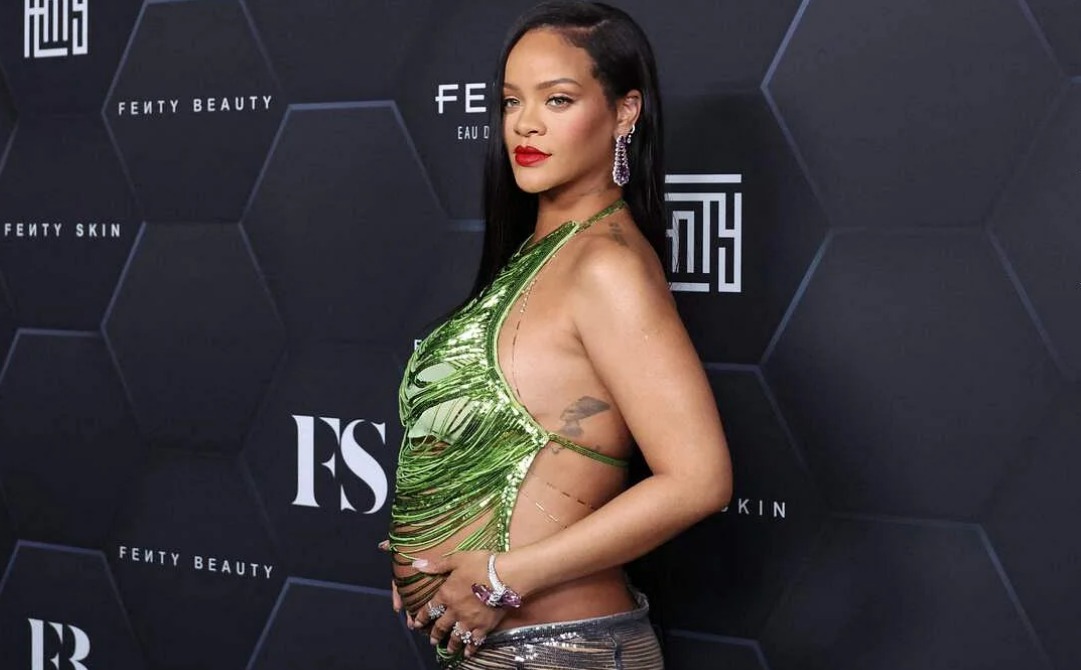
Rihanna upended the cosmetics market five years ago when she launched a makeup brand for people of color.
Now she is bucking conventional wisdom again with a big bet on an often-overlooked market: Africa.
The star singer and her partner, luxury giant LVMH, are taking Fenty Beauty to a continent worth an estimated 2 billion U.S. dollars in retail value in 2022 across premium beauty and personal care, according to data from researcher Euromonitor International.
The line is available in South Africa, Botswana, Ghana, Kenya, Namibia, Nigeria, Zambia and Zimbabwe.
Global beauty brands had passed over African countries for years because of lower consumer spending power. Historically, the industry also focused on making products for white skin and hair types.

The 34-year-old international superstar enters with advantages. She had a big social media following on the continent and a lot of consumers were already buying Fenty products online despite pricey shipping costs.
“Now we get to experience it ourselves, on our turf,” said Ms Foyin Ogunrombi, a beauty influencer who promoted the launch of the brand for ARC, a retailer in South Africa.
She predicts that Rihanna’s star power and the brand’s established popularity will help the products sell well.
For LVMH, which has a stake in Fenty, pushing the beauty line into Africa could help promote its house of brands, which include Hennessy and Tag Heuer, to the region’s young and increasingly wealthy shoppers.
The company generates about 90 percent of its sales from Europe, Asia and the United States, meaning Africa is largely untapped.
Rihanna, whose full name is Robyn Rihanna Fenty, redefined the cosmetics industry when the line debuted in 2017 with 40 shades of foundation.
It generated more than 550 million U.S. dollars in sales in its first year by appealing to people of colour who had previously settled for makeup that did not match their skin tone or had to mix their own.
Now Clinique, Maybelline, Dior and MAC Cosmetics all offer at least that many options, too.
“Rihanna stands out,” said Ms Deborah Aitken, a Bloomberg Intelligence analyst.

As a black businesswoman with a long-established following among young people and an even wider base after becoming a mother, Rihanna resonates globally and in Africa, she said.
The prospects for Fenty look good.
The region is young, but also gaining more wealth. In sub-Saharan Africa, 70 per cent of its almost 1.1 billion people are aged under 30.
And in the wake of pandemic lockdowns, consumers are “refilling the makeup bag,” Ms Aitken said.
That potential was apparent as customers joined celebrities and influencers at midnight launch events in Johannesburg’s financial centre, Sandton, dubbed Africa’s richest square mile.
The Barbados-born singer did not attend, but posted on Instagram to officially announce the launch wearing an outfit by Thebe Magugu, a South African designer.
“I can finally get something that matches my skin tone” said Ms Owami Tshuma, a 20-year-old customer who snapped up Fenty’s foundation on launch day.
Products in the existing Fenty skincare and beauty lines will be sold at ARC stores in South Africa; Edgars in South Africa, Botswana and Namibia; Essenza in Nigeria and Ghana; Lintons Beauty World outlets in Kenya; Catts Beaute in Zimbabwe and Zambia’s Color Cafe.
Original article published by Bloomberg Africa
Follow our socials Whatsapp, Facebook, Instagram, Twitter, and Google News.





